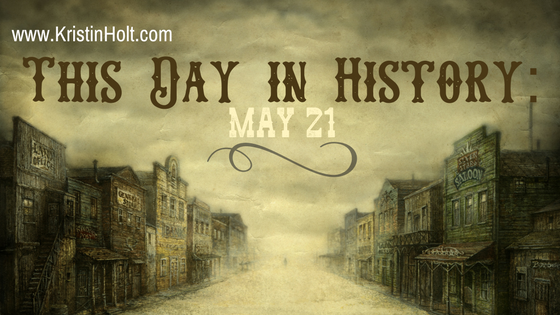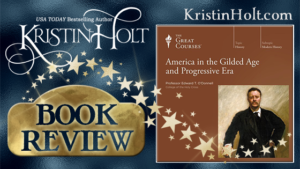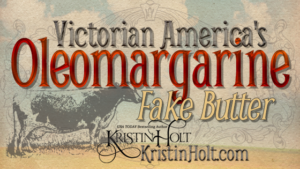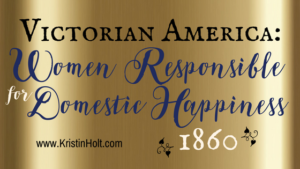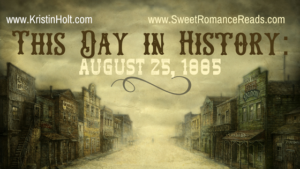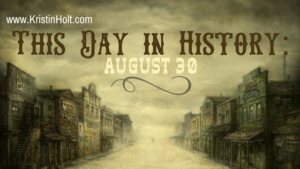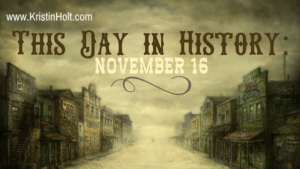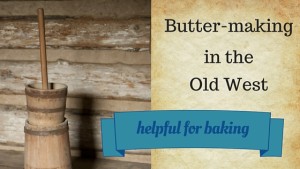This Day in History: May 21
This Day in History: May 21
.
.
INVENTORS: FaceTime Foreseen
.
Inventors “endeavoring to perfect instruments by which it will be possible to view persons at a distance as we now speak with them by telephone“… brings to mind a host of 21st century tech. Skype. FaceTime. Google Duo. Zoom.
In this case, saying “1880 called. They want their technology back” just doesn’t make sense.
.
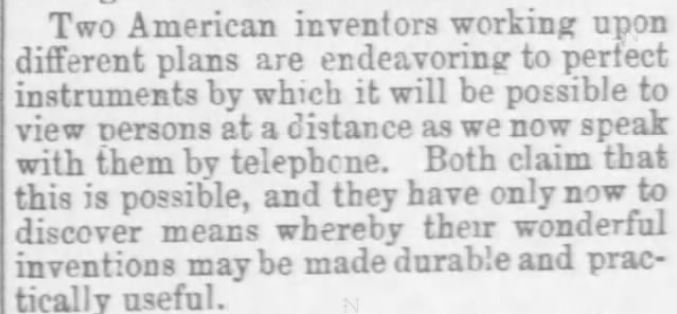
“FaceTime” foreseen by two inventors in 1880? Greenwood County Republican of Eureka, Kansas on May 21, 1880.
.
.
LEAP YEAR
.
I’m fascinated by the nineteenth century Americans’ observations of Leap Year. Enough so to write a novella set in 1888, a Leap Year, and a courtship based upon “role reversal.” According to AccuracyProject.org, 1880, 1884, and 1888 were Leap Years. The pattern is generally every four years.
.
.

The Times-Picayune of New Orleans, Louisiana on May 21, 1880. Leap Year Party quip attributed to Salem Sunbeam.
.
**Remember the definition of “making love” was G-rated in nineteenth century America**
.
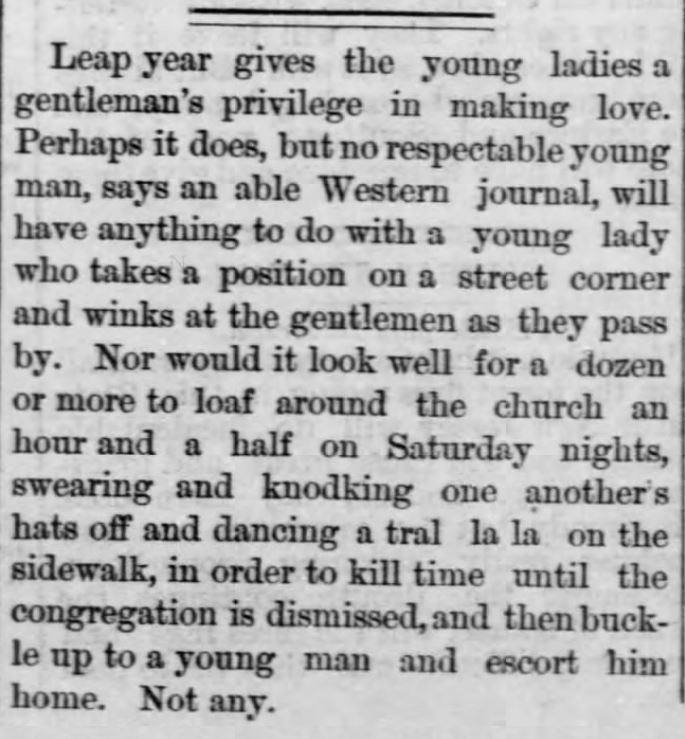
Leap Year, Reversal of Roles, published in Walnut Valley Times of El Dorado, Kansas, on May 21, 1880.
.
.
BOGUS BUTTER: OLEOMARGARINE
.
Really? Margarine was on the horizon–and on the supper table–in the nineteenth century? I believed margarine didn’t show up until World War I or World War II when desperate times called for desperate measures.
.
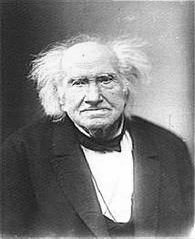
Chevreul, 1886. Image: Public Domain, courtesy of Wikipedia.
.
But nope–the traveshamockery of fake butter known as Oleomargarine, Margarine, and sometimes simply Oleo–was conceived in Europe in 1813 by French chemist Michel Eugène Chevreul, as margaric acid. France stayed in the lead of margarine development when Emperor Napoleon III “offered a prize to anyone who could make a satisfactory butter alternative, suitable for use by the armed forces and the lower classes.” [Science Power 9: Atlantic Edition, McGraw-Hill Ryerson Limited. ISBN 0-07-560905-3, quoted by Wikipedia]
.
In John Steele’s 1850 California gold miner’s journal, he wrote: “I became acquainted with Mr. Dainels, from Baltimore, who… manufactured butter from tallow and lard, and it looked and tasted so much like real butter, that… I could not tell the difference. However, he deceived no one, but sold it for just what it was. He never explained the process of its manufacturer, and whether he was the originator of oleomargarine I do not know.”
.
~ John Steele: In Camp and Cabin: Mining Life and Adventure in California During 1850 and Later, Lakeside Classics 1928, pg. 134, quoted by Wikipedia
The eBook is available FREE: Google Play, (and Google Play), Archive.org,
.
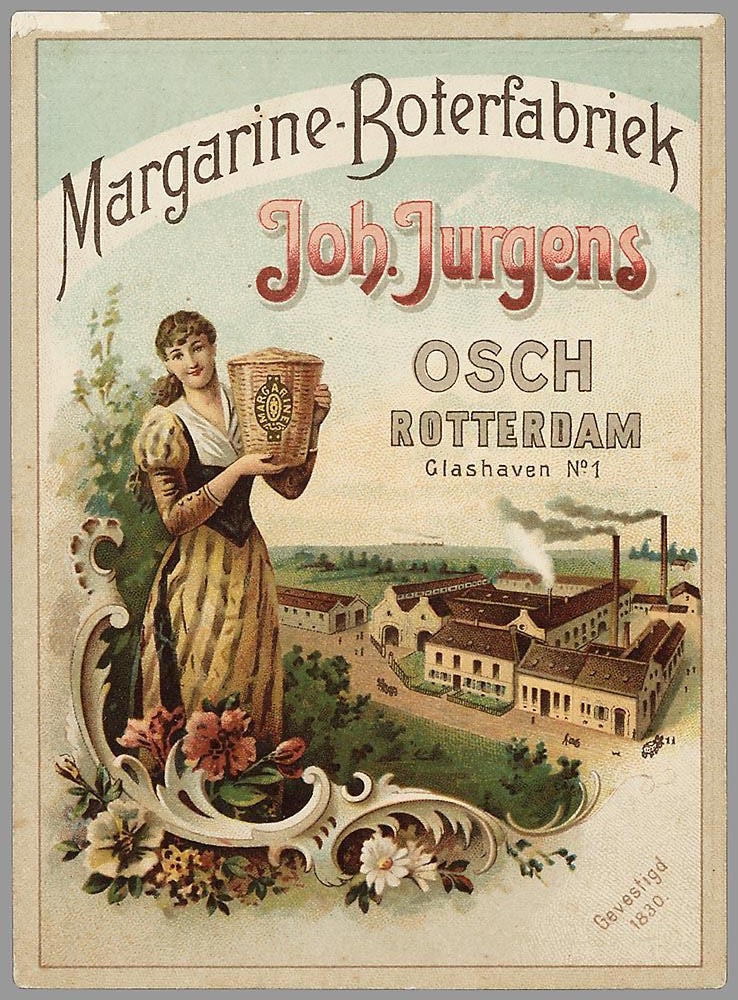
Margarine Advertisement, 1893. Image: Public Domain, courtesy of Wikipedia.
.
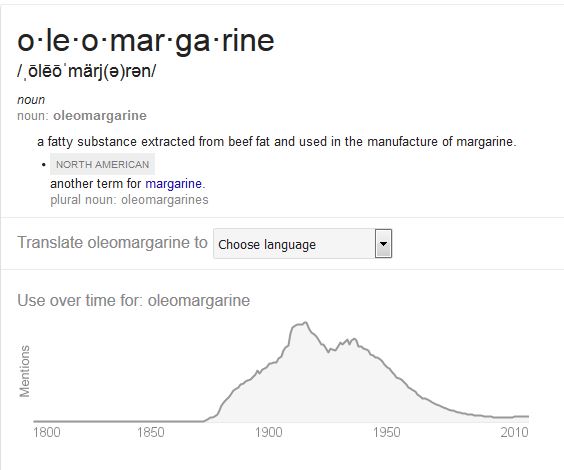
Definition of Oleomargarine, and use of this word in history. Courtesy: Google.
.
Now comes the article titled Bogus Butter, published in great detail within The Scientific American on April 24, and the following article appeared in Chicago Tribune, then reprinted on May 21, 1880, in Walnut Valley Times of El Dorado, Kansas. This find sparked my interest in pursuing the history of Oleomargarine. Fascinating tidbits of real history!
.
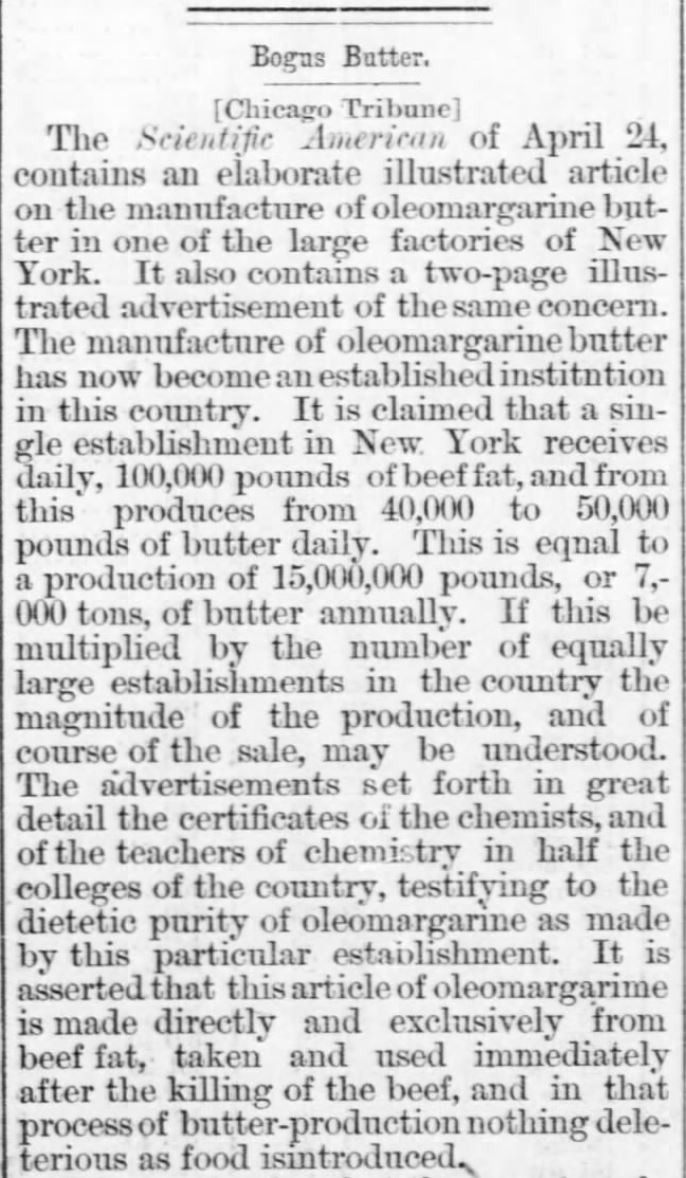
1) “Bogus Butter”, published in Walnut Valley Times of El Dorado, Kansas, on May 21, 1880. Part 1 of 2.
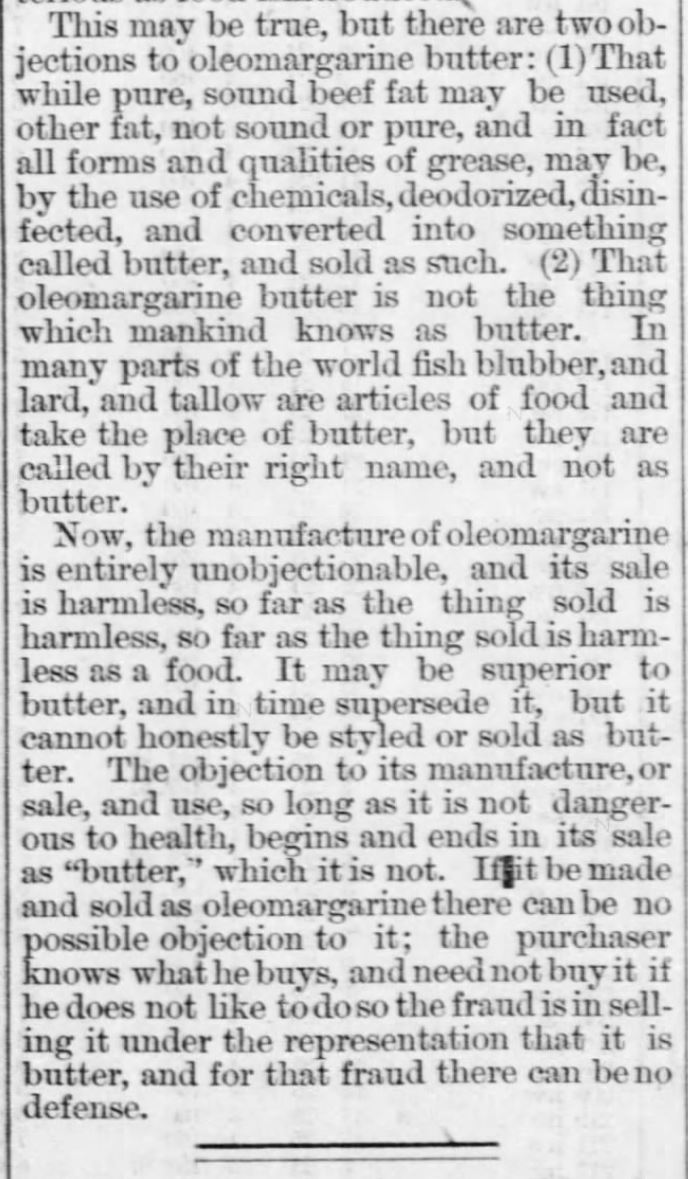
2) “Bogus Butter”, published in Walnut Valley Times of El Dorado, Kansas, on May 21, 1880. Part 2 of 2.
.
I’m also fascinated that so early in American history (1880) an unknown voice raises serious concerns about truth in labeling. In addition, consumer’s rights, adulteration, and misrepresentation of food products raised big concerns. After a full 26 years passed Upton Sinclair’s novel The Jungle brought the horrors of unsanitary conditions in meat-packing plants to public view. The novel provoked a tremendous public uproar and led to the Federal Meat Inspection Act of 1907.
See more about The Jungle, and how this muckraking novel impacted society in late-nineteenth century America.
.
.
.
![]()
.
Invitation
.
What are your thoughts about these three topics all found in newspapers published May 21, 1880?
.
![]()
.
Related Articles to This Day in History: May 21
.
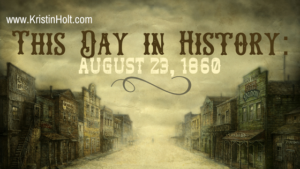
Woman’s duties earn and keep her husband’s love
Updated April 2021
Copyright © 2017 Kristin Holt LC
This Day in History: May 21

